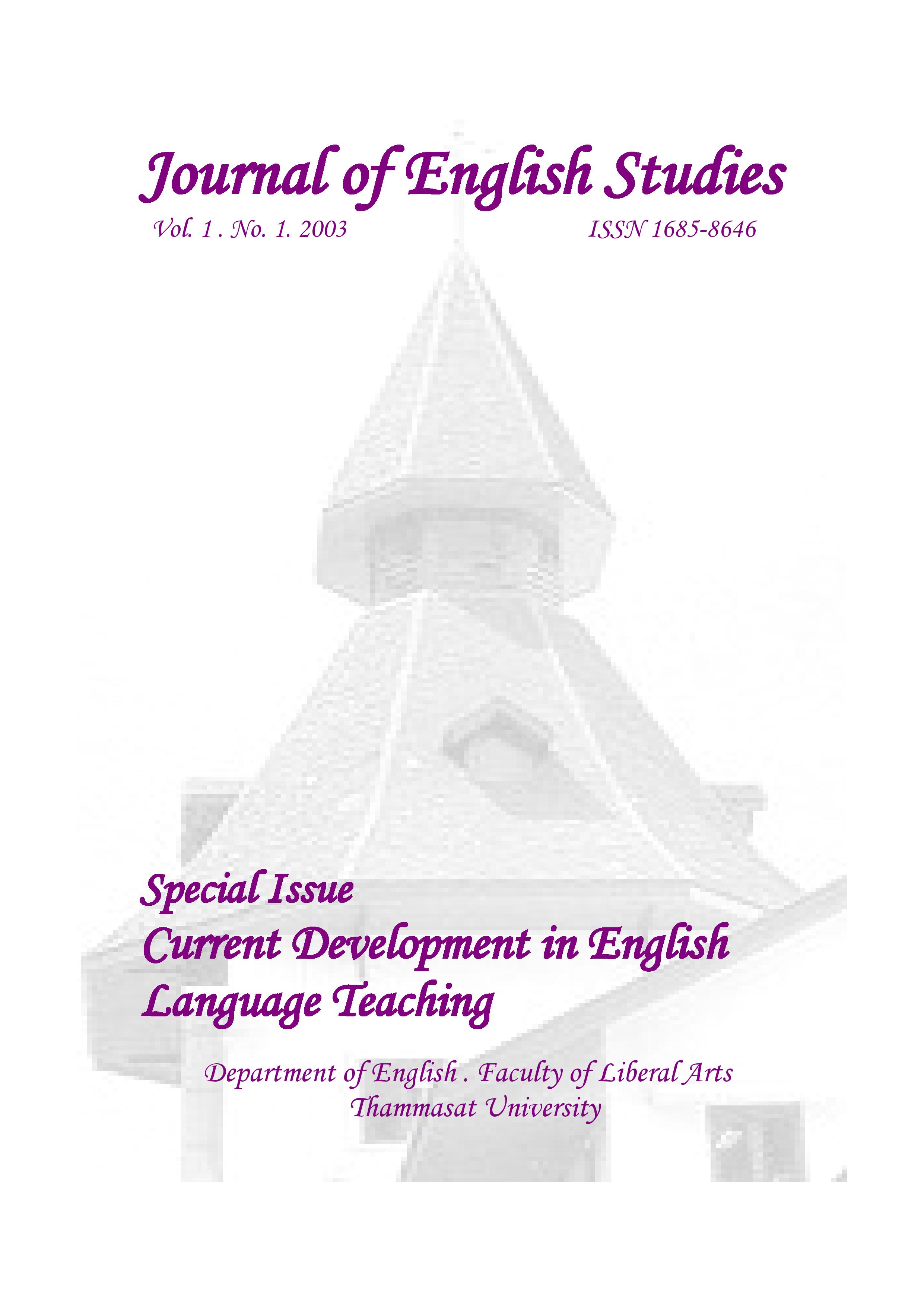English Proficiency of Thai Learners and Directions of English Teaching and Learning in Thailand
Main Article Content
Abstract
This paper presents the findings from an investigation of English proficiency of Thai students who took the Chulalongkorn University Test of English Proficiency (CU-TEP) in 2001. It was found that the majority of the students could not meet the standard required to study at the graduate level at Chulalongkorn University. This calls for an urgent need to enhance the English proficiency of Thai students at various levels. Components of the English syllabus, namely course goals and objectives, materials, tasks and activities, testing and evaluation as well as the roles of teachers and students have to be reconsidered. Directions and ways to help Thai students acquire the target language and prepare them to be qualified world citizens in the era of globalization will be discussed.
Article Details

This work is licensed under a Creative Commons Attribution-NonCommercial-NoDerivatives 4.0 International License.
Authors who publish with this journal agree to the following terms: Authors retain copyright and grant the journal right of first publication with the work simultaneously licensed under a Creative Commons Attribution License that allows others to share the work with an acknowledgement of the work's authorship and initial publication in this journal. Authors are able to enter into separate, additional contractual arrangements for the non-exclusive distribution of the journal's published version of the work (e.g., post it to an institutional repository or publish it in a book), with an acknowledgement of its initial publication in this journal. Authors are permitted and encouraged to post their work online (e.g., in institutional repositories or on their website) prior to and during the submission process, as it can lead to productive exchanges, as well as earlier and greater citation of published work (See The Effect of Open Access).References
Panitchapakdi, S. (January, 1998). Keynote Speech.The 1998 International Symposium on “The Central Intellectual Property and International Trade Court as a Model for IPRsEnforcement for the 21stCentury". Bangkok, Thailand.
Prapphal, K. (1997). Educational technology for TEFL. PASAA, 27, 121-127.
Prapphal, K. (1998). Self-directed learning through the Internet and Intranet pedagogy: a choice for language teachers. PASAA, 28, 62-82.
Prapphal, K. (2001). Globalization through distance education via Inter-and Intranet pedagogy. PASAA, 31, 75-81.
Prapphal, K., & Opanon-amata, P. (2002). An investigation of English proficiency of Thai graduates. Research Report. Chulavijai, 21(3), 12-16.
TOEFL Test and Score Data Summary, ETS (1993-1999).
Wang, Y., &Kim, C-H. (November, 2000). Quality assurance, credit transfer andmutual recognition in higher education--Role on Quality Assurance in Higher Education: Standard, Mechanisms and Mutual Recognition. Bangkok, Thailand.
Wongboonsin, K. et al. (2003). A study on the future of Thai workforce. National Research Council of Thailand.


